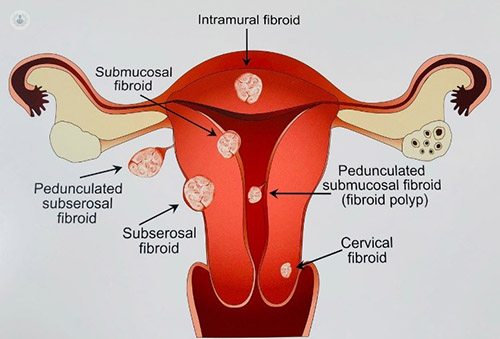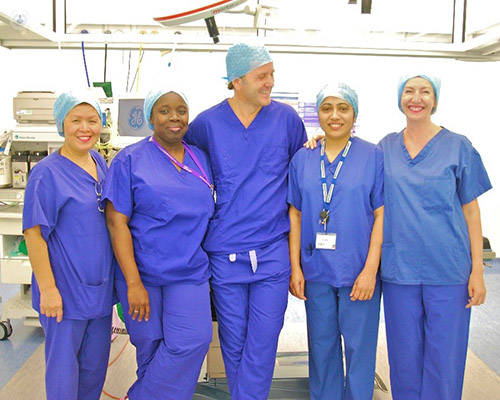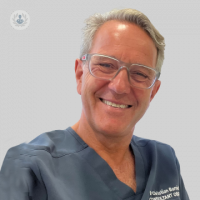An expert's guide to uterine fibroids
Autore:Mr Christian Barnick is a consultant obstetrician and gynaecologist who has been managing fibroids for over 20 years.
Fibroids are the most common benign growth found in women of reproductive age and are found in up to 30% of women of all races, however, they are most common in Afro-Caribbean and West African women. Fibroids grow as a response to oestrogen hormone levels, and as a result, they will shrink after the menopause. Unlike their name suggests, fibroids are not fibrous, but made up of smooth muscle. Therefore, in a medical setting they are often referred to as leiomyoma or a smooth muscle growth.

How do fibroids form?
The womb is made up of smooth muscle fibres which do not normally divide, however, in women with fibroids the mechanism normally present to prevent cell division is faulty. As a result, muscle cells in the womb divide until a small lump, or fibroid, develops. Fibroids can grow up to 12cm in diameter and are nearly always multiple. There is a very strong hereditary factor in the formation of fibroids.
What are the symptoms of fibroids?
Most of the time, fibroids will not produce any symptoms and do not require treatment, however, in some women fibroids and lead to a number of problems. This can depend on where the fibroids are within the womb.
For example, sub-serosal fibroids do not form in the cavity of the womb so generally do not affect periods or fertility. However, if they are large you may be able to feel them as a lump and may press on the bladder causing bladder or bowel symptoms.
Fibroids that do form in the cavity of the womb, even small ones, can affect menstruation, causing heavy bleeding and even fertility problems.
Other symptoms of fibroids can include:
- Bloating
- Frequent urination
- Heavy and painful periods
- Pain during sex
- Miscarriage
- Premature births
How can fibroids be treated?
There are numerous treatment options available for patients, however, it is really important that the treatment chosen is what is right for the patient and what suits them best. Hence, treatment will depend on the patient’s age, their symptoms, the size of the fibroids and their desire for having children.
For women suffering from heavy bleeding, hormone manipulation or the progesterone coil can be successful in improving this symptom. In some cases, the actual fibroids will need to be treated, for which there are a series of options available.
Surgical treatments available include:
- Myomectomy
- Hysteroscopic resection
- Endometrial ablation
- Hysterectomy
Radiological procedures available include:
- Uterine fibroid embolization
- MRI guided focused ultrasound
If surgery is needed, we will try to perform this as keyhole surgery (minimally-invasive) to reduce the risk of complications and to improve the recovery period. This is possible for large fibroids as well as smaller ones.

If you are concerned that you may be suffering from fibroids, make an appointment with a specialist.


